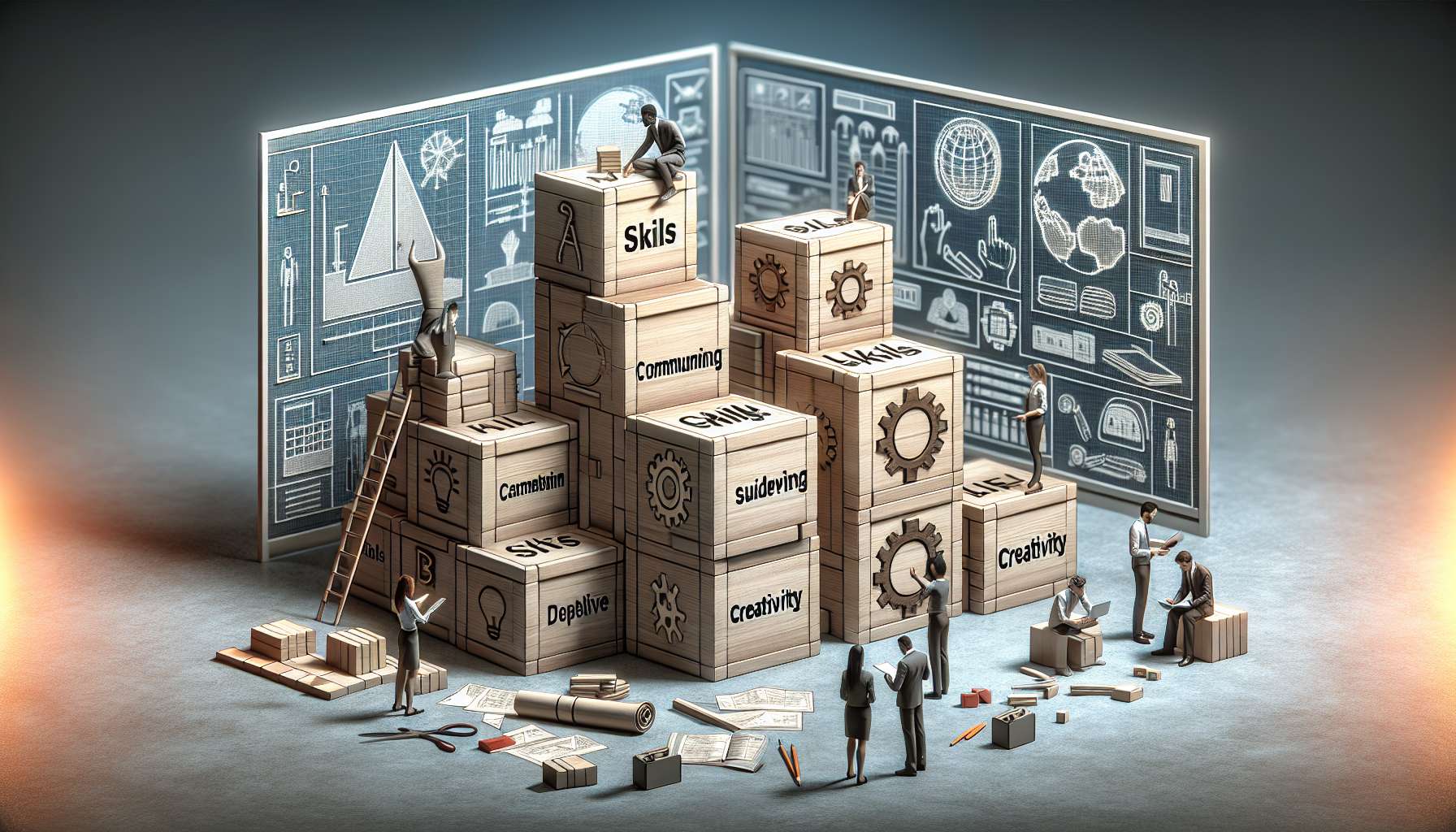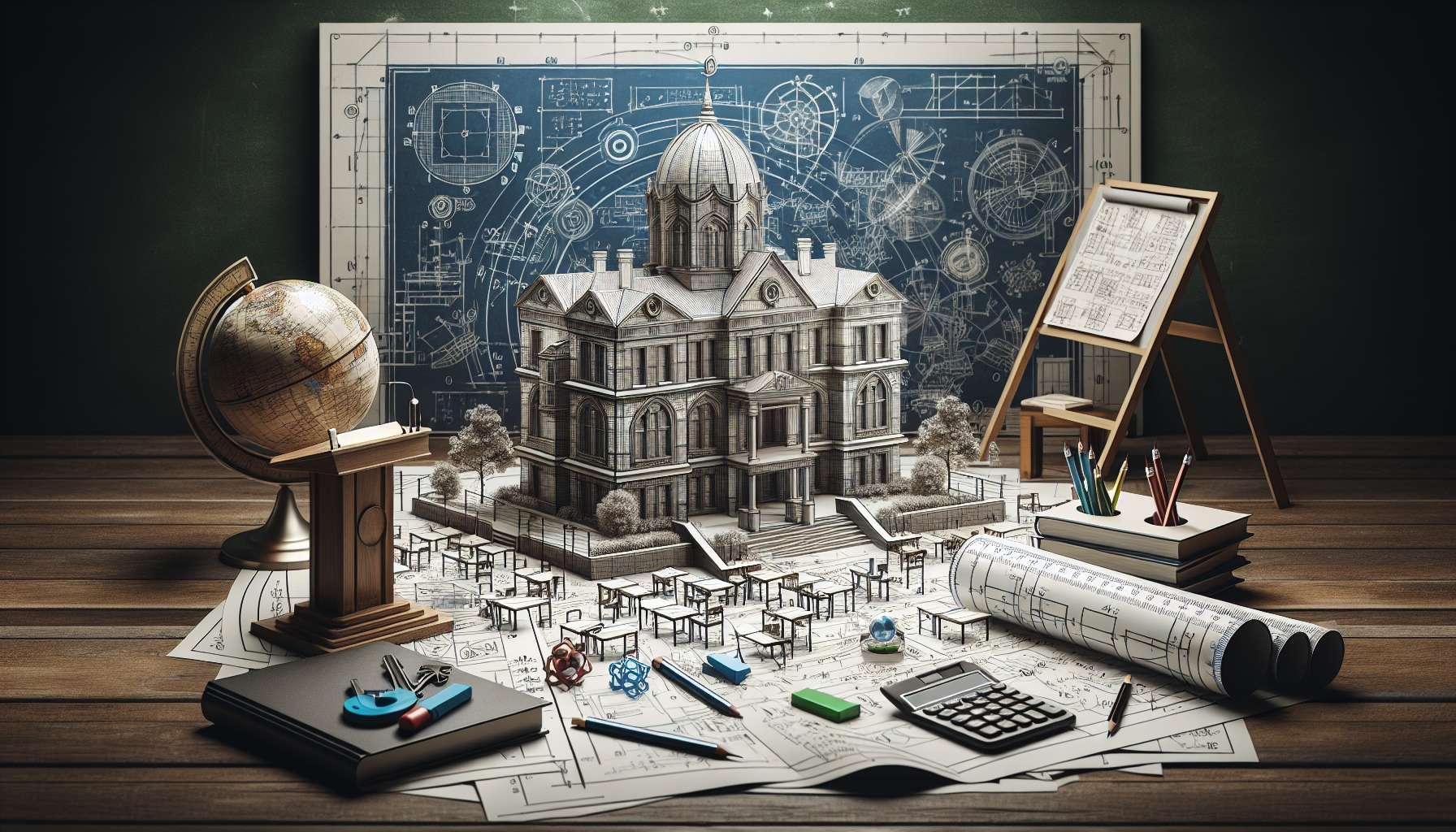Skill Building Blocks
Have you ever marveled at the proficiency of a pianist effortlessly playing intricate melodies or admired the finesse of a chef crafting a culinary masterpiece? Behind these impressive displays of skill lie the foundational elements known as skill building blocks. These building blocks are the essential components that enable individuals to develop and master various skills, from playing a musical instrument to excelling in sports or honing their craft in the professional world. In this comprehensive guide, we will delve into the intricacies of skill building blocks, exploring their significance, different types, and how they contribute to personal and professional growth.
The Anatomy of Skill Building Blocks
Skill building blocks are the fundamental units of competence that form the basis of acquiring, refining, and mastering skills. These blocks encompass a wide range of cognitive, physical, emotional, and social components that collectively contribute to an individual’s ability to perform a particular task or activity effectively. Just as a house is built brick by brick, skills are developed by strengthening each building block in a systematic and progressive manner.
One of the key aspects of skill building blocks is their interconnectivity and interdependency. For example, cognitive skills such as problem-solving and critical thinking are essential for mastering complex tasks, while physical skills like dexterity and coordination are crucial for activities that require manual dexterity. Emotional skills such as resilience and self-awareness play a significant role in managing stress and building healthy relationships, while social skills like communication and teamwork are vital for collaborating with others effectively.
The Types of Skill Building Blocks
There are several categories of skill building blocks that encompass a wide range of abilities and competencies. Some of the key types of skill building blocks include:
Cognitive Skills
Cognitive skills refer to the mental processes that enable individuals to acquire knowledge, understand concepts, solve problems, and make decisions. These skills include critical thinking, creativity, memory, attention, and executive functions such as planning, organizing, and prioritizing. Cognitive skills are essential for learning new information, adapting to change, and navigating complex situations.
Physical Skills
Physical skills encompass the abilities related to the body’s movement and coordination. These skills include fine motor skills, gross motor skills, hand-eye coordination, balance, flexibility, and strength. Physical skills are fundamental for performing tasks that require manual dexterity, agility, and stamina, such as playing sports, dancing, or engaging in manual labor.
Emotional Skills
Emotional skills pertain to the awareness and management of one’s emotions, as well as the ability to recognize and empathize with the emotions of others. These skills include self-awareness, emotional regulation, empathy, resilience, and interpersonal skills. Emotional skills are crucial for building healthy relationships, managing stress, and coping with challenges effectively.
Social Skills
Social skills involve the ability to communicate, collaborate, negotiate, and resolve conflicts with others. These skills include verbal and nonverbal communication, active listening, teamwork, leadership, and conflict resolution. Social skills are essential for building strong interpersonal relationships, working effectively in teams, and navigating social settings with confidence.
Practical Skills
Practical skills refer to the abilities related to performing specific tasks or activities in various domains. These skills include technical skills, problem-solving skills, time management, organization, and adaptability. Practical skills are essential for excelling in professional settings, managing projects efficiently, and adapting to changing circumstances in the workplace.
Case Study: The Development of Musical Skills
Let’s explore how skill building blocks play a crucial role in the development of musical abilities. Learning to play a musical instrument requires a combination of cognitive, physical, emotional, and social skills that work together harmoniously to achieve mastery.
Cognitive skills such as memory, attention, and problem-solving are essential for memorizing musical notes, understanding rhythms, and interpreting sheet music. Physical skills such as finger dexterity, hand-eye coordination, and posture are crucial for playing the instrument with precision and fluency. Emotional skills such as self-discipline, patience, and resilience help musicians persevere through challenges and setbacks, while social skills such as collaboration, communication, and performance etiquette enable them to interact with bandmates, conductors, and audiences effectively.
By honing each building block systematically and practicing consistently, musicians can enhance their musical abilities, express their creativity, and connect with others through the universal language of music.
The Future of Skill Building Blocks
As we navigate an increasingly complex and interconnected world, the importance of skill building blocks in personal and professional development cannot be overstated. In the digital age, where automation and artificial intelligence are reshaping the workforce, individuals need to cultivate a diverse set of skills that go beyond technical expertise.
Skills such as creativity, critical thinking, emotional intelligence, and adaptability are becoming increasingly valuable in a rapidly evolving job market. By focusing on developing these essential building blocks, individuals can position themselves for success in the future economy, where agility, resilience, and lifelong learning are key to staying competitive and thriving in a dynamic environment.
Expert Opinions
According to Dr. Angela Duckworth, a renowned psychologist and author of “Grit: The Power of Passion and Perseverance,” skill building blocks are the foundation of resilience and success. She emphasizes the importance of developing grit, a combination of passion and perseverance, in cultivating long-term goals and overcoming obstacles. Dr. Duckworth believes that individuals who possess strong skill building blocks are more likely to achieve their aspirations and lead fulfilling lives.
Common Misconceptions
One common misconception about skill building blocks is that they are fixed and unchangeable. In reality, skill building blocks are malleable and can be developed and strengthened through deliberate practice, feedback, and reflection. By adopting a growth mindset and embracing challenges as opportunities for growth, individuals can enhance their skill building blocks and unlock their full potential.
Conclusion
To wrap things up, skill building blocks are the foundational elements that enable individuals to develop, refine, and master a wide range of skills. By understanding the different types of skill building blocks and their interconnected nature, individuals can enhance their cognitive, physical, emotional, social, and practical abilities to thrive in various domains.
As we look towards the future, the cultivation of skill building blocks will be essential for navigating the complexities of the modern world and adapting to the evolving demands of the digital economy. By focusing on developing a diverse set of skills and fostering a growth mindset, individuals can unlock their potential, achieve their goals, and lead fulfilling lives enriched by continuous learning and personal growth.




